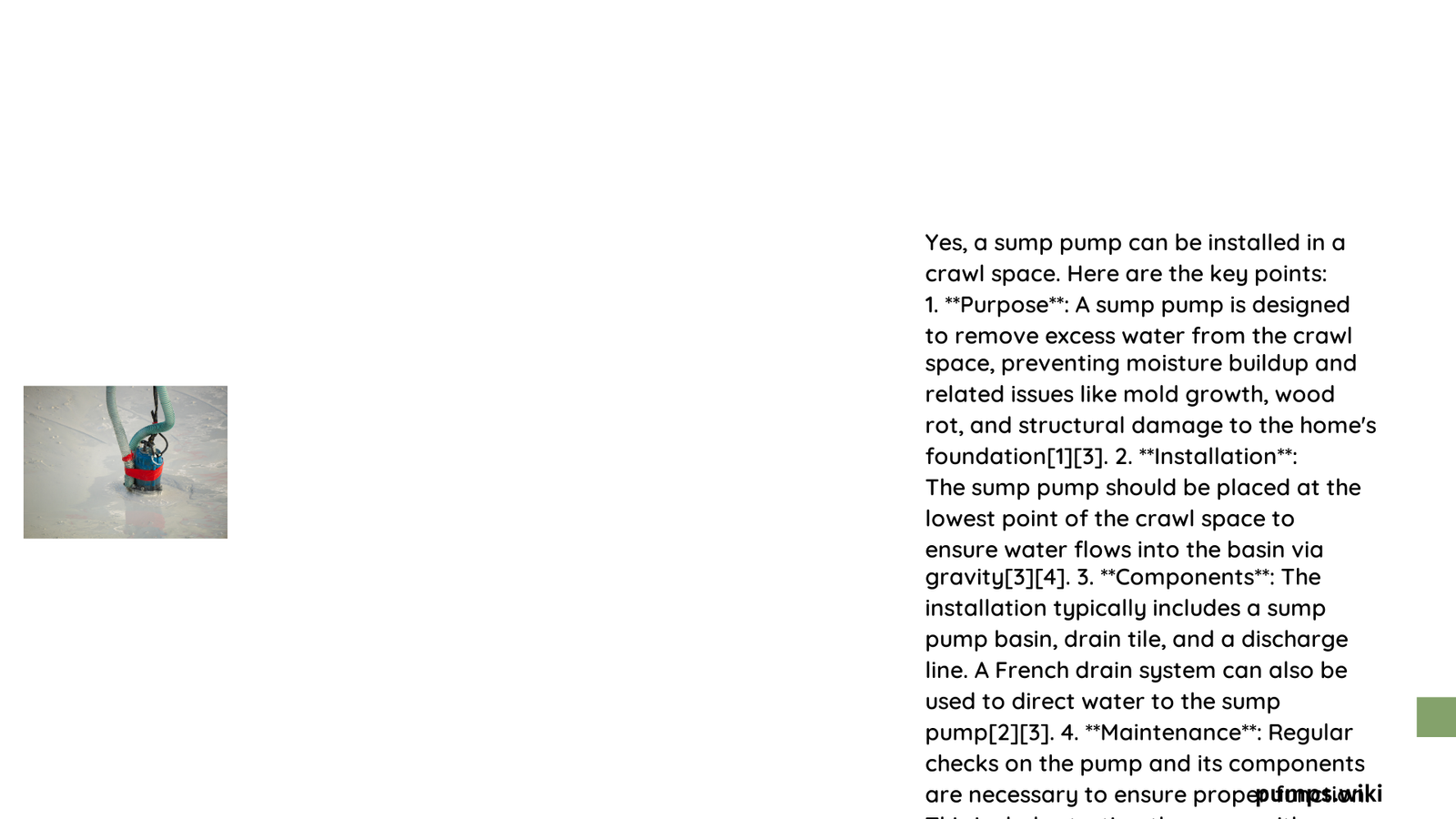Installing a sump pump in a crawl space is a critical solution for homeowners battling moisture issues, water accumulation, and potential structural damage. This comprehensive guide explores the intricate process of sump pump installation, addressing technical considerations, challenges, and best practices for effective water management in confined underground spaces.
What Makes Sump Pump Installation in Crawl Spaces Necessary?
Water accumulation in crawl spaces can lead to significant problems:
- Structural Damage: Persistent moisture causes wood rot, mold growth, and foundation deterioration
- Health Risks: Damp environments promote mold and mildew proliferation
- Property Value Reduction: Unmanaged moisture decreases home marketability
How Do Sump Pumps Work in Crawl Spaces?
Sump pumps function by collecting groundwater in a strategically placed pit and automatically pumping it away from the foundation. The installation process involves several critical steps:
- Location Selection
- Identify the lowest point in the crawl space
- Ensure proximity to power source
-
Consider discharge pipe routing
-
Pit Preparation
- Excavate area for sump liner
- Add gravel base for drainage
- Ensure proper dimensions (6-10 inches larger than liner)
What Types of Sump Pumps Work Best?
| Pump Type | Pros | Cons | Best For |
|---|---|---|---|
| Submersible | Quiet operation | Higher cost | Tight spaces |
| Pedestal | Easy maintenance | Louder | Open crawl spaces |
What Are the Key Installation Considerations?

Power and Electrical Requirements
- Use GFCI protected outlets
- Consider battery backup systems
- Ensure proper electrical connections
Drainage System Integration
Effective sump pump performance requires comprehensive drainage strategy:
- French Drain Implementation
- Perimeter trench excavation
- Perforated pipe installation
- Gravel coverage
- Slope towards sump pit
How Much Does Crawl Space Sump Pump Installation Cost?
Installation expenses vary based on complexity:
- Basic Installation: $500 – $1,000
- Complex Systems: $1,500 – $3,000
- Factors Influencing Cost:
- Crawl space accessibility
- Drainage requirements
- Pump capacity
- Local labor rates
What Challenges Might Homeowners Encounter?
- Limited vertical space
- Challenging soil conditions
- Complex drainage requirements
- Potential moisture-related complications
Professional vs. DIY Installation
| Approach | Advantages | Disadvantages |
|---|---|---|
| Professional | Guaranteed expertise | Higher cost |
| DIY | Cost-effective | Risk of improper installation |
Maintenance and Long-Term Considerations
Regular maintenance ensures optimal sump pump performance:
- Annual professional inspection
- Clean sump pit quarterly
- Test pump functionality seasonally
- Replace backup battery every 2-3 years
Technical Specifications to Consider
- Pump Capacity: 2,000-3,000 GPH recommended
- Discharge Pipe: Minimum 1.5-inch diameter
- Check Valve: Essential for preventing backflow
Final Recommendations
Successful sump pump installation in crawl spaces requires:
– Thorough site assessment
– Proper equipment selection
– Professional consultation
– Ongoing maintenance
References:
– WaterSmart Sump Pump Guide
– Building America Solution Center
– Falcone Crawl Space
